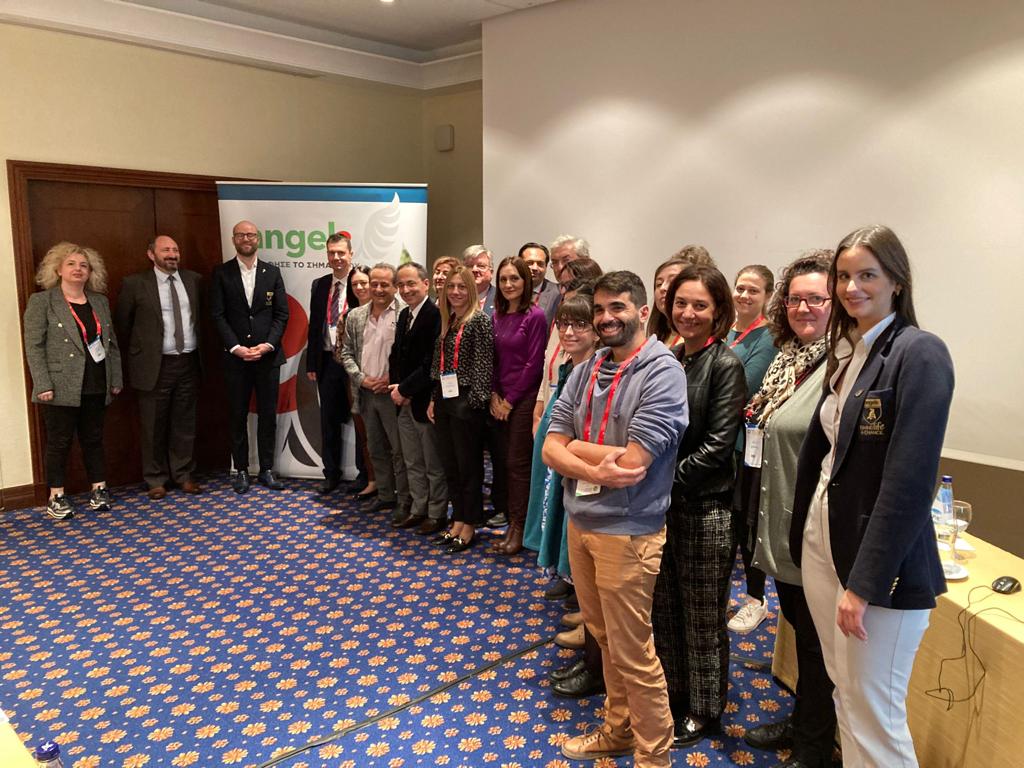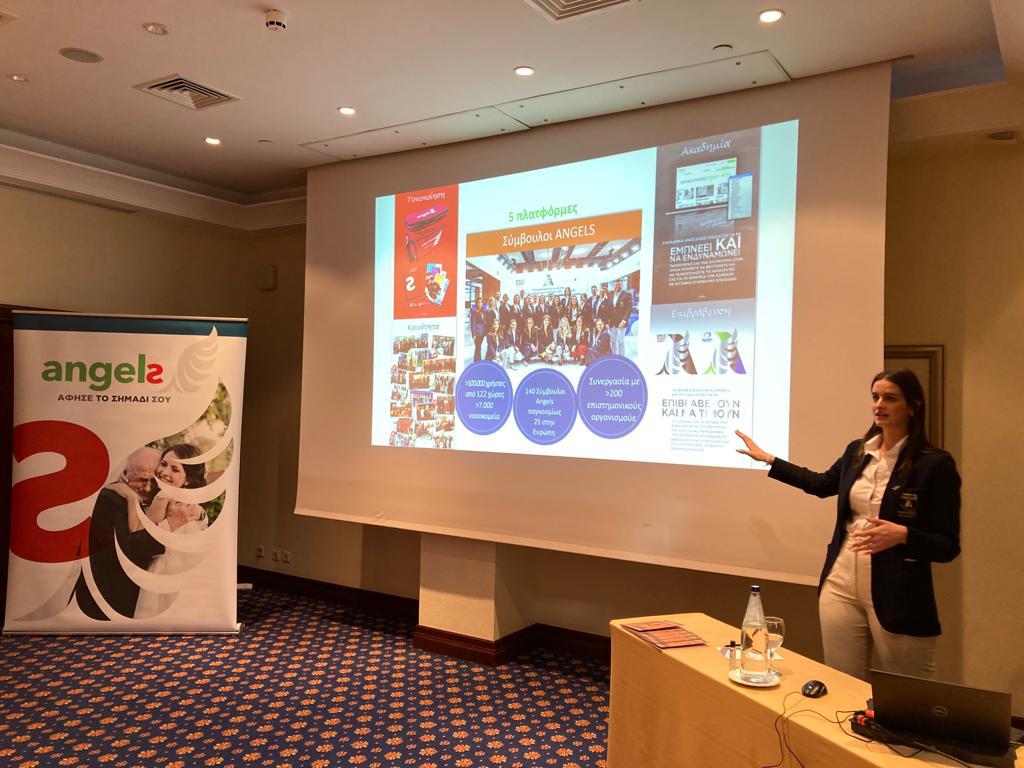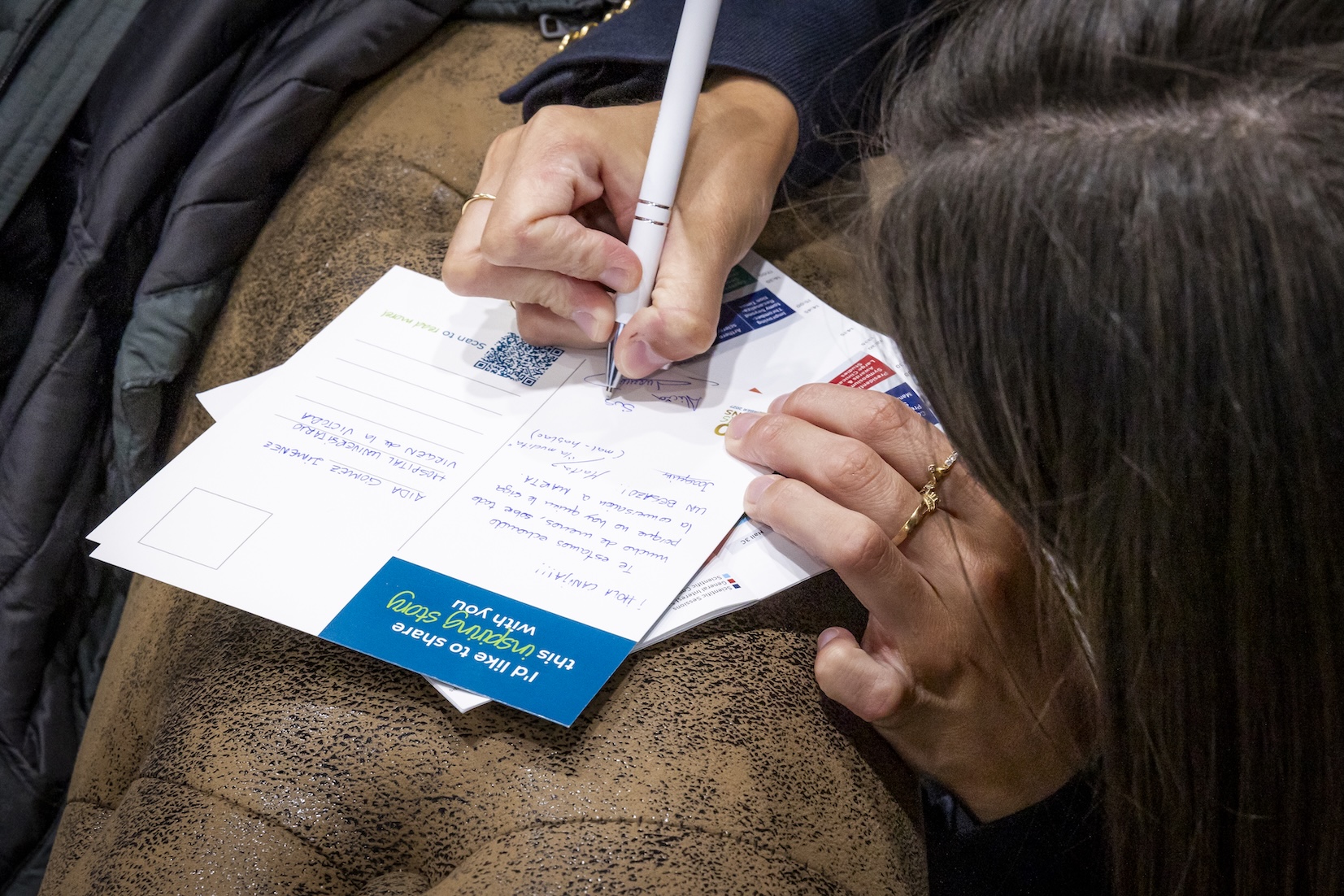
Встречи, как правило, плохой настрой. Жалуется, что слишком много, слишком долго, мешают продуктивности. Но встречи также могут быть критически важным инструментом, позволяющим каждому участнику оставаться на одной странице, а правильное совещание в нужное время может привести к прорыву, способному повлиять на тысячи жизней.
Заседание такого роста состоялось в пятницу 11 ноября 2022 в северо-греческом городе Салоники. Присутствовали около двадцати неврологов из крупных больниц по всей стране и национальный директор С помощью СМП. Председателем являлся д-р Георгиос Цивгулис университетской больницы Attikon, который также является национальным координатор инсульт в Греции и вице-президентом Европейская организация по борьбе с инсультом (European Stroke Organisation). На подиуме была Элени Панаутсопоулу, которая всего за семь месяцев до этого стала первым консультант Angels в Греции.
Елени Инициатива Angels и объяснила, как пять платформ в модели Angels могут помочь греческим больницам улучшить уход уход за пациентом с инсультом, поскольку в нем есть множество больниц в других местах. Она предоставила информацию о наградах Европейская организация по борьбе с инсультом (ESO) Angels и С помощью СМП Angels Awards, уход за пациентом с инсультом в Греции и кратком обзоре мероприятий Angels на сегодняшний день, включая посещение больниц и участие греческих врачей в учебных мероприятиях Angels и семинарах по моделирование в Каунасе, Литва.
Обучение и моделирование были одной из трех тем обсуждения повестки дня, а также договорились о День Инициативы Angels, который состоится в сентябре, и о важности сбора данных о лечение, терапия инсульт для мониторинга качества, что приводит к активному обмену мнениями.
Греческие больницы делают многое правильно, говорит Елени, которая заслуживает д-ру Цивгулису теплого приветствия, которое она и Angels получила от инсульт сообщества Греции. "Был достигнут большой прогресс в лечение, терапия тромболизис, и положение по умолчанию в больницах, готовых принимать пациентов с инсульт, заключается в лечении острый инсульт, если пациент соответствует критериям участия в исследовании. То есть вопрос не в лечении, а в том, как быстро.
Медиана время от поступления до введения препарата в Греции составляет 63 минуты, поэтому ее первоначальный акцент будет сделан на стандартизации процедуры в существующих инсульт центрах и устранении задержек лечение, терапия.
Нехватка задач отсутствует. В Греции проживает второе по возрасту население Европы после Италии, и, следовательно, большая когорта, уязвимая к инсульт. Качество медицинской помощи резко отличается между компанией Attica, где проживает почти половина населения, и отдаленными деревнями как на центральных островах, так и на меньших островах.
Политика предусматривает, что скорая помощь штатов доставит вас в ближайшую дежурную государственную больницу независимо от готовности к инсульт, а в небольших деревнях путь в ближайшую больницу проходит через местный медицинский центр, что может привести к дальнейшей задержке.

С яркой стороны, национальный директор С помощью СМП с энтузиазмом относится к улучшению уход за пациентом с инсультом посредством обучения и осведомленности, а Греция уже является основой удостоенной награда образовательной программы, направленной на повышение осведомленности о симптомах инсульт и необходимости быстрых действий.
На севере всего 13 км от отеля Якобнеса, где 10-я Национальная конференция по борьбе с инсультом в Хельсинге обеспечила идеальные условия для проведения первого заседания организационного комитета Angels, в котором профессор Харриет Пройос и доктор Калиоп Цакпоуниду из Департамента образования и социальной политики сотрудничали с руководителем проекта Angels Яном ван дер Мерве для создания кампании Fast Heroes.
Кампания, в которой используется энтузиазм детей для обучения и обмена знаниями с остальными членами их семьи, особенно с их бабушками и дедушками, была пилотирована в греческих школах до того, как они познакомились с другими странами и континентами.
По словам Елени, супергерои М.О.З.Г. 4,5 остаются популярными среди греческих студентов и учителей, при этом в школах регистрируется большее количество занятий, чтобы спасти миру, по одному бабушке и дедушке.
Встреча в Салоники показала большой импульс проекту Angels в Греции, предсказав успешные результаты вмешательства, направленного на спасение жизни и будущего пациентов с инсульт.
По словам канадского автора Нади Скриевой, "Каждая встреча проводится в то время, на которое она была оговорена. Обычно, когда это окажет наибольшее влияние на нашу жизнь".




